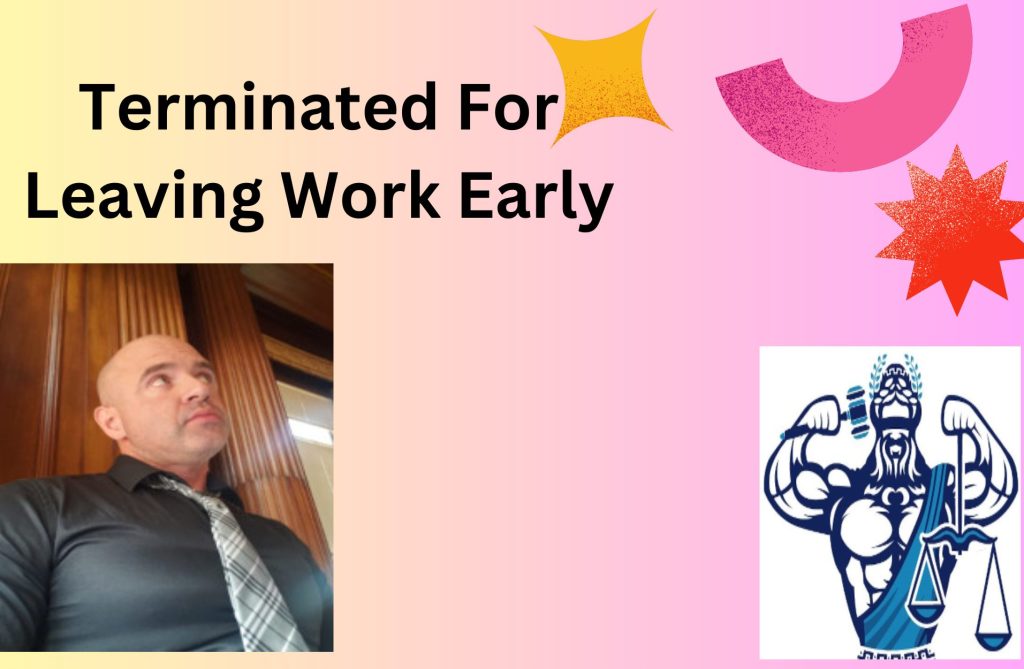Still, here at Miletti Law®, we feel obligated to enlighten, educate, and create awareness, free of charge, about how these issues and many others affect our unusually motivated® readers and/or their businesses. Accordingly, to achieve this goal, we have committed ourselves to creating authoritative, trustworthy, & distinctive content. Usually, this content is featured as videos posted on our YouTube Channel https://www.youtube.com/channel/UCtvUryqkkMAJLwrLu2BBt6w and blogs that are published on our website WWW.MILETTILAW.COM. With that, the ball is in your court and you have an effortless obligation to subscribe to the channel and sign up for the Newsletter on the website, which encompasses the best way to ensure that you stay in the loop and feel the positive impact of the knowledge bombs that we drop here!
As the authoritative force in Employment Law, it only seemed right to introduce one of the many upcoming series in which we introduce a variety of topics that looks to educate and deliver in a manner that only Miletti Law® can. To that end, this blog is Part IV of a new and short series on “Key Legal and Drafting Issues for Non-solicitation Covenants/Agreements.” In Part III, we hammered on “Avoiding Ambiguous or Overreaching Employee Non-solicitation Agreements” as one of the key considerations when drafting employee non-solicitation agreements. Regarding this consideration, we mentioned that it is illogical to have a restriction without a time limit. Generally, any restrictive covenant made to last up to one year is presumably reasonable. However, we also asserted that the further out the restriction goes from 1 year and beyond, the more it becomes unreasonable. Accordingly, this goes without saying that an employee non-solicitation agreement with an unlimited time frame may be deemed unreasonable.
As a continuation of this discussion, we have hammered, in this short blog and Part IV of our series, “Avoiding Ambiguous or Overreaching Employee Non-solicitation Agreements,” another key consideration that every employer must factor in when drafting valid employee non-solicitation agreements that would be enforceable under the law.
Avoiding Ambiguous or Overreaching Employee Non-solicitation Agreements
Usually, an employee non-solicitation agreement may be rendered unenforceable when terms such as “encourage” and “influence” are used as a way of expanding the reach beyond employee solicitation since such usage of considered too broad. Instead, a knowledge requirement should be included to avoid such an issue since it helps in qualifying the obligation not to solicit employees. For instance, a qualified employee non-solicitation agreement may be something like “the employee agrees that for a period of twelve months after the termination of his/her employment, the employee will not intentionally or knowingly encourage or induce company employee to sever his/her relationship with the company.”
Another non-solicitation agreement that may be deemed enforceable can be something like, “the employee agrees that for a period of twelve months after the termination of his or her employment, the employee will not (a) take part in any way with another entity or person, if the purpose of such contact is to induce or cause the company employee server his or her relationship of employment with the company and/or (b) knowingly communicate with a Company employee.” Generally speaking, such employee non-solicitation agreements may be deemed enforceable in a court of law.
In Part V of this series, we will shift gears and mark the start of five additional blogs that will dwell on five key considerations for every employer when drafting client/customer non-solicitation agreements. Specifically, we will hammer on “Defining Clients that will be Specifically Covered by the Non-solicitation Agreement and Determining the Scope of Prohibited Customer Solicitation,” which encompasses a critical consideration that every employer must factor in when drafting valid client/customer non-solicitation agreements that would be enforceable under the law.
In the meantime, stay tuned for more legal guidance, training, and education. In the interim, if there are any questions or comments, please let us know at the Contact Us page!
Always rising above the bar,
Isaac T.,
Legal Writer & Author.
 314-648-2586
314-648-2586 CALL US NOW
CALL US NOW







